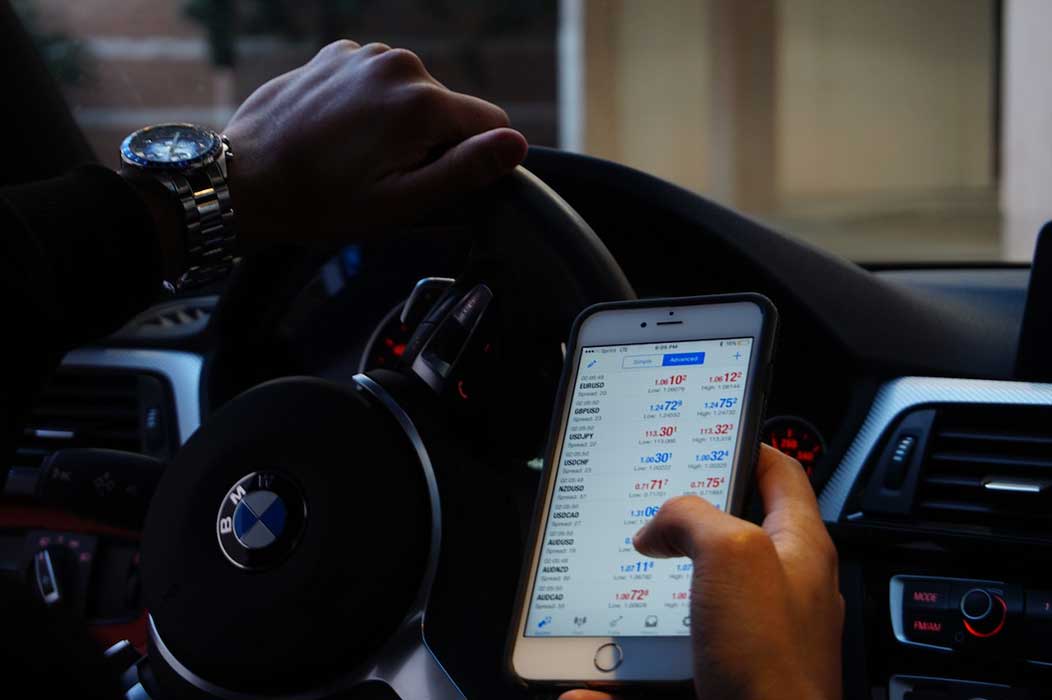How Blockchain Revolutionizes Accounting: A Comprehensive Guide

Blockchain technology affects accounting by providing an immutable and transparent ledger that helps in recording financial transactions securely. Blockchain technology is revolutionizing the way accounting is done and is quickly becoming a major driving force in the industry.
With its decentralized, tamper-proof nature, blockchain eliminates the need for intermediaries, reducing the possibility of fraud and providing greater transparency. It allows for the creation of smart contracts that can automatically execute financial transactions, eliminating the need for manual intervention.
Blockchain also enables real-time tracking of assets and inventory, making audits more efficient and accurate. Moreover, the technology can improve the speed of transactions, reduce transaction costs, and help prevent errors. All in all, blockchain technology has the potential to significantly transform accounting, and its impact will only continue to grow in the future.

Credit: www.blockchain-council.org
Advantages Of Blockchain In Accounting
Blockchain technology is revolutionizing several business sectors, including accounting. Blockchain has the potential to bring accountability and transparency to accounting processes while increasing accuracy and reducing costs. In this section, we will look at the various advantages of blockchain in accounting.
Improved Transparency
One of the main advantages of blockchain in accounting is the transparency it provides. Every transaction on the blockchain is recorded and can be viewed by anyone with access to the blockchain network. This means that there is no room for any fraudulent activities, and the entire accounting process becomes trustworthy.
Blockchain technology provides transparency in accounting, which is essential for auditing. Auditors can easily access all the information on the blockchain and verify the transactions. This creates trust between the different parties involved, making the accounting process more efficient.
Enhanced Security
Another major benefit of using blockchain in accounting is enhanced security. Blockchain is a decentralized system that can prevent data breaches, hacking, and fraud. The data on the blockchain is stored in blocks that are linked with cryptography. Once a block is added to the blockchain, it becomes impossible to edit or delete any data.
The security provided by the blockchain ensures that the data is safe and secure from unauthorized access. This reduces the chances of fraudulent activities and helps maintain the integrity of the accounting process.
Increased Accuracy
Using blockchain in accounting can help increase accuracy in accounting records. As all the transactions are recorded and verified, there is no room for errors or discrepancies. The use of smart contracts on the blockchain automates several processes, reducing the chances of manual errors.
The accuracy provided by blockchain in accounting can help businesses make informed decisions based on reliable data. This can help improve their performance, reduce risks and save costs.
Streamlined Processes
Blockchain technology can help streamline several accounting processes. For instance, the use of smart contracts automates several processes, reducing the need for manual intervention. This can help save time and resources, making the accounting process more efficient.
The blockchain can also help with the reconciliation process. With the help of blockchain, transactions can be verified in real-time, making the reconciliation process faster and more efficient.
Reduced Costs
Using blockchain in accounting can help reduce costs. The use of smart contracts automates several processes, reducing the need for manual intervention. This can help save time and resources, making the accounting process more efficient.
The transparency and security provided by the blockchain can also help reduce costs. With reduced chances of fraudulent activities, businesses do not have to spend resources on detecting and preventing fraudulent activities.
Blockchain technology has several advantages in accounting, including improved transparency, enhanced security, increased accuracy, streamlined processes, and reduced costs. With advances in technology, we can expect more innovative uses of blockchain technology in accounting in the future.
How Blockchain-Based Accounting Works
Blockchain technology is rapidly changing the financial industry, and accounting is no exception. With blockchain-based accounting, all transactions are recorded on a distributed and decentralized digital ledger, providing increased transparency, security and accuracy.
The Basic Principles Of Blockchain
To understand how blockchain-based accounting works, it’s essential to know the fundamental principles of blockchain technology:
- Decentralization: Blockchain technology operates on a decentralized network, meaning that there’s no need for intermediaries like banks to facilitate transactions.
- Immutability: Once a transaction is recorded on the blockchain, it can’t be altered, making it tamper-proof and highly secure.
- Transparency: All participants on the blockchain network can see every transaction in real-time, promoting greater transparency and accountability.
Modeling Accounting And Financial Processes Using Blockchain
There are several ways in which blockchain technology can be used to improve accounting and financial processes, including:
- Smart contracts: Smart contracts are self-executing programs that automatically enforce pre-agreed terms and conditions between two parties. By leveraging blockchain technology, smart contracts can automate the accounting process, reducing the need for manual intervention.
- Audit trails: Blockchain’s immutability ensures that all transactions are recorded in real-time and are tamper-proof. This feature helps to provide a comprehensive audit trail that can be easily verified by auditors.
- Transaction verification: Blockchain eliminates the need for intermediaries like banks, making transaction verification faster, more efficient and less expensive.
Comparison With Traditional Accounting
Blockchain-based accounting offers several advantages over traditional accounting, such as:
- Security: Blockchain technology ensures that all transactions are secure, tamper-proof, transparent and immutable, eliminating the potential for fraud.
- Cost-effectiveness: By automating the accounting process and reducing the need for manual intervention, blockchain-based accounting can significantly reduce costs.
- Transparency: All participants on the blockchain network can see every transaction in real-time, promoting greater transparency and accountability.
Case Studies On Blockchain-Based Accounting
Several companies have adopted blockchain-based accounting and are reaping the benefits. Here are a few examples:
- Walmart: Walmart is using blockchain technology to track the supply chain of its products, allowing the company to quickly identify any issues that arise, reducing waste and increasing efficiency.
- Pepsico: Pepsico is using blockchain technology to streamline its accounts receivable process, reducing the need for intermediaries and improving the overall efficiency and accuracy of the process.
- Maersk: Maersk, the world’s largest shipping company, is using blockchain technology to track the movement of goods along its supply chain, reducing the time and cost of processing paperwork and improving overall efficiency.
Blockchain-based accounting is revolutionizing the accounting industry by providing increased transparency, security and accuracy, while also reducing costs and improving efficiency. As the technology continues to evolve, we can expect to see further adoption and implementation in the years to come.
Implementing Blockchain In Accounting
The implementation of blockchain in accounting can increase efficiency, security and transparency in a company’s financial operations. However, integrating this new technology can pose various challenges. In this section, we’ll explore the steps to implementing blockchain in accounting and ways to mitigate the potential challenges.
Steps To Introducing Blockchain In The Accounting Process
Introducing blockchain in accounting is a process that requires careful planning and execution. Here are some steps to help you get started:
- Identify key areas in accounting that can benefit from blockchain implementation, such as auditing, financial reporting, and tracking financial transactions.
- Formulate a strategic plan for implementing blockchain technology in your accounting system.
- Choose the right platform or software that suits your accounting needs and is compatible with blockchain technology.
- Consult with experts in the field of blockchain technology to gain insights on best practices for implementation.
- Ensure proper training and education of the staff involved in the transition to prevent any hiccups or disruptions in the accounting process.
Potential Challenges In Implementing Blockchain
While the potential benefits of blockchain in accounting are numerous, implementation can be a daunting task. Here are some potential challenges that might arise:
- Change resistance among staff members who may be unfamiliar with the technology or resistant to change.
- Compliance and regulatory issues, as blockchain has yet to be fully recognized under standard accounting regulations.
- Expected high implementation costs, which may result in budget constraints.
- Difficulty in integrating blockchain technology with existing accounting software and tools.
Ways To Mitigate The Challenges Of Implementing Blockchain In Accounting
To mitigate the challenges of implementing blockchain in accounting, here are some ways to consider:
- Organize adequate training and education for staff members to ensure they fully understand the technology and how it can benefit the company.
- Seek professional advice from blockchain experts to understand the regulatory landscape and ensure compliance with financial regulations.
- Formulate a detailed implementation plan that outlines the costs involved and projected roi to secure budgetary support.
- Consider using plug-and-play blockchain platforms that are easily integrated with existing accounting systems, which will eliminate the need for additional investment in software and tools.
Implementing blockchain technology in accounting can revolutionize the sector, leading to greater efficiency, security, and transparency. By following the steps outlined and mitigating potential challenges, your organization can reap the benefits of this emerging technology.
Future Of Blockchain In Accounting
Blockchain technology is expected to revolutionize accounting practices, making them more secure, transparent, and efficient. In this comprehensive guide, we will explore the future of blockchain in accounting and discuss the possible advancements, potential impact, and challenges and opportunities for adapting to blockchain-based accounting.
Possible Advancements In Blockchain Technology For Accounting
Blockchain technology has the potential to transform accounting practices. Some of the possible advancements include:
- Smart contracts: Smart contracts are self-executing contracts that run on blockchain technology. They have the potential to automate accounting processes, including payroll, account reconciliation, and invoice management.
- Digital identity management: Blockchain technology can be used to manage digital identities, ensuring the authenticity of the information and reducing the risk of fraud.
- Real-time reporting: Blockchain technology enables real-time reporting, which can help businesses make more informed decisions about their finances.
Potential Impact On The Accounting Profession
The adoption of blockchain technology is expected to have a significant impact on the accounting profession. Here are some of the potential implications:
- Reduced costs: Blockchain technology can reduce the cost of accounting processes by automating tasks such as data entry and reconciliation.
- Increased transparency: Blockchain technology enables transparent and auditable transactions, making it easier for auditors and regulators to verify financial information.
- Redefined roles: The adoption of blockchain technology may redefine the roles of accountants and auditors, requiring new skills such as understanding blockchain technology and smart contracts.
Challenges And Opportunities For Adapting To Blockchain-Based Accounting
While blockchain technology presents opportunities for the accounting profession, it also poses some challenges. Here are some of the challenges and opportunities for adapting to blockchain-based accounting:
- Regulatory compliance: The lack of clear regulatory frameworks for blockchain technology poses a challenge for businesses looking to adopt it.
- Implementation costs: The implementation of blockchain technology can be costly, requiring businesses to invest in new infrastructure and software.
- Increased efficiency: Blockchain technology can improve the efficiency of accounting processes, reducing the time and resources needed to complete tasks.
The future of blockchain in accounting looks promising. With the potential advancements in blockchain technology, the impact on the accounting profession, and the challenges and opportunities for adapting to blockchain-based accounting, it is clear that blockchain technology will play a significant role in the future of accounting.
Frequently Asked Questions For How Does Blockchain Affect Accounting
How Does Blockchain Technology Improve Accounting Processes?
Blockchain technology eliminates the need for intermediaries in financial transactions, improving transparency, and enhancing the audit trail. It helps accountants automate and streamline bookkeeping, reduces errors, and eliminates reconciliation processes.
How Does Blockchain Reduce Accounting Errors?
Blockchain technology’s distributed ledger system enables real-time tracking of transactions and eliminates the need for manual data entry, significantly reducing accounting errors. Blockchain reduces mistakes, ensuring accurate financial records.
How Does Blockchain Increase Accounting Efficiency?
Blockchain significantly reduces the time and resources spent on manual accounting processes by streamlining and automating bookkeeping. It also eliminates the need for reconciliations and audits, allowing businesses to focus on value-added activities.
How Does Blockchain Improve Fraud Detection In Accounting?
The immutable nature of blockchain ensures that all transactions are tamper-proof, making it easier to detect fraudulent activities and unauthorized modifications. Blockchain increases accountability and transparency, making it easier to identify fraudulent schemes.
Can Blockchain Be Used For Tax Compliance?
Yes, blockchain can be used to streamline tax compliance by creating a tamper-proof digital trail. With smart contract technology, tax regulations and requirements can be coded into the blockchain, making tax compliance more efficient and accurate.
What Are The Challenges Of Implementing Blockchain In Accounting?
The lack of standardization, regulatory hurdles, and integration with existing systems are some of the challenges of implementing blockchain in accounting. Furthermore, the high cost of implementation and the need for specialized skills may deter businesses from adopting blockchain technology.
Conclusion
As the digital currency and blockchain technology continue to gain popularity worldwide, it has become increasingly important for industries to adapt to these innovations. The accounting industry is no exception. With its decentralized and tamper-proof nature, blockchain has the potential to revolutionize accounting in ways we can only imagine.
It brings a level of transparency, efficiency, and security that traditional accounting methods cannot match. From simplifying audits to reducing fraud and increasing accuracy, blockchain has a lot to offer. However, as with any new technology, there are also challenges to overcome, such as adapting to the new system, addressing data privacy concerns, and ensuring compliance with regulations.
But with the right approach and understanding of the technology, it is only a matter of time before blockchain becomes a standard in the accounting industry. It is an exciting time for the world of accounting, and the future looks promising with blockchain at the helm.







